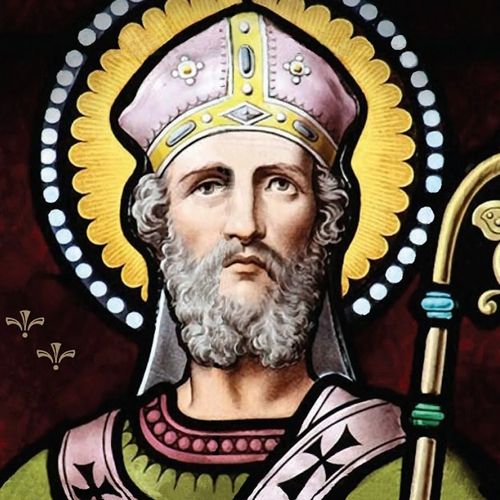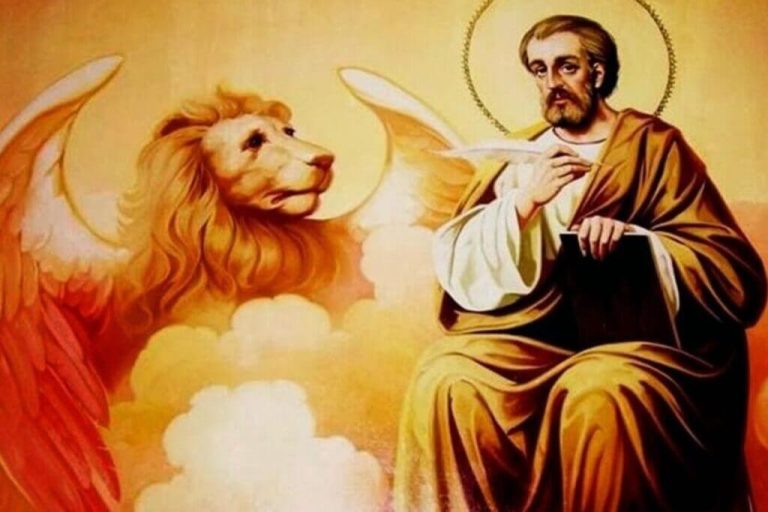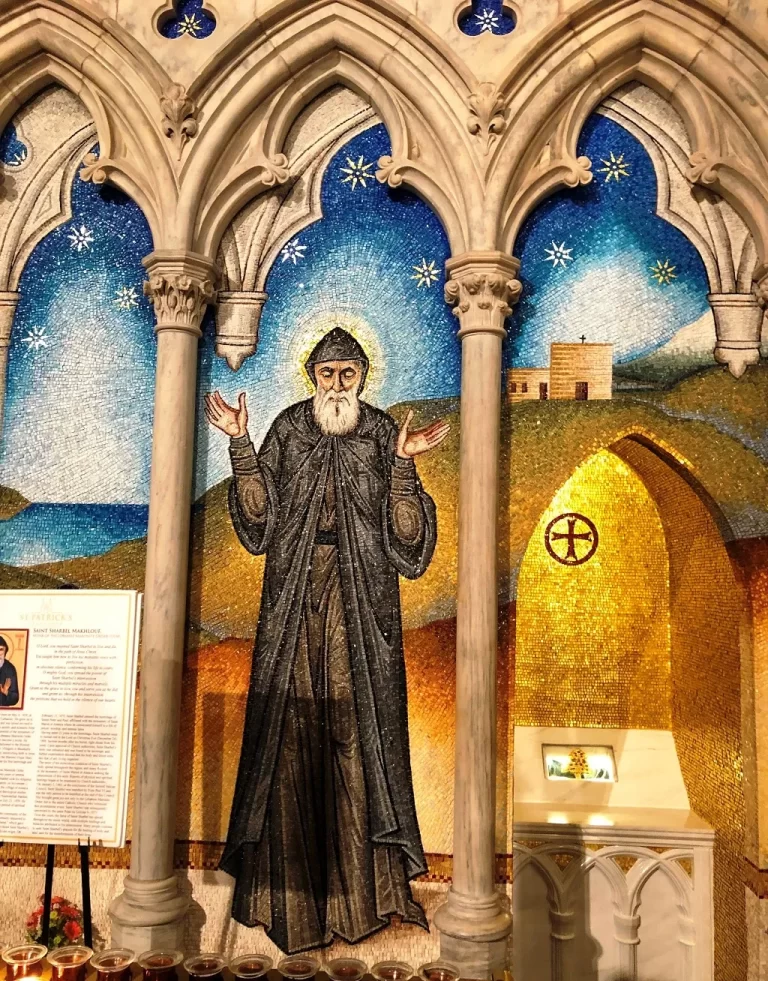Saint Anselm of Canterbury, life and contributions
Saint Anselm of Canterbury was a popular theologian and a great doctor who belonged to the Catholic Church, in this way it can also be noted that he was abbot in a monastery in Santa María de Bec (France). If you want to know more about his life, you came to the right place here we will describe all the information you want to know about such an important character, do not stop reading the post.
San Anselmo de Canterbury
Saint Anselm of Canterbury was born in the year 1033 in Aosta Italy, he was from a noble family. It should be noted that Saint Anselm from an early age was interested and leaned towards what we know as the contemplative life, however his father who was named Gandulfo he strongly opposed her, since he was totally denied that his firstborn was a monk since he yearned with all his might for him to follow in his footsteps and build a family just like he did.
With all this situation Anselmo suffered a lot since his father’s rejection of what he longed for so much hurt him, so much so that it led to him becoming seriously ill, however even seeing him like this his father was not moved by anything and his thoughts continued being the same that for no reason he could give himself to that life, Anselmo already tired of all that fight decides to fulfill his father’s wish and joins the mundane life of the time.
He adapted to it and you could even see him happy with the life he was leading just as his father wanted it, he was very happy with all the facilities and benefits that his rank and the family to which he belonged offered him, without However, in his heart and his biggest dream he always followed his desire to follow God’s call.
After thinking about it a lot Anselmo decides to leave his father’s house and pursue his dream, he leaves for France and then goes to Normandy where the monastery was located where the great monk Lanfranco, a famous teacher of theology, imparted his knowledge respectively and he wanted at all costs to learn. of this great teacher of theology.
Saint Anselm managed to dedicate himself fully to the study of theology, in this way he follows in the footsteps of his distinguished teacher, Anselm very young becomes his successor as abbot of the monastery, and becomes an eloquent and eminent teacher, since he was a great preacher and reformer of everything that implies being part of the monastic life, but above all and most importantly Anselm became a great theologian for this time.
His great simplicity and his life condition brought him many oppositions to his thoughts and way of life, however, despite this, thanks to his great humanity and humility, he managed to win the love and esteem of even the least believers and enthusiasts, he was recognized by being a genius in metaphysics, with great intelligence and heart he was able to approach the deepest of the Christian mysteries and managed to write the following: “Do, I beg you, Lord, that I feel with my heart what I touch with the intelligence”.
Among his works, two stand out in particular and the best known is Monologion or also known as the way to meditate on the reasons of faith, and also the Proslogio that deals specifically with faith or the search for intelligence. Saint Anselm commented that it was necessary to increase more and more both our faith and intelligence and thus always be waiting for the beatific vision.
On the other hand, it can be mentioned that both his philosophical works as well as his meditations that speak about redemption start from the lively impulse of both the heart and intelligence, in this theory, the father of Scholasticism was very similar to Saint Augustine.
In the primacy of England at the see of Canterbury, he was appointed as archbishop thanks to his dignity and entered throughout his career. When he was in Bec as a monk, always with the great humility that characterized him, he had to fight tirelessly with the hostility of both William the Red and Henry first respectively, at first it was just about disputes, but over time it became a great He fights in such a way that he went through two exiles.
After one of the exiles, he went to Rome not only with the purpose of having his rights recognized, but also in order to request before the corresponding authorities that the sanctions decreed against his adversaries be diminished, achieving with this action that the spirits between everyone calmed down and in this way he managed to completely disarm his two adversaries.
Saint Anselm died on April 21, 1109 in the city of Canterbury. It is important to mention that in 1720, Pope Clement XI declared Saint Anselm as the doctor of the church, a title that he earned through his exemplary life.
Little is known about the life of Anselmo and in the texts what can be found is thanks to Eadmero, a disciple of the doctor of the church, who through great work was in charge of documenting what his hagiography and through it that we can learn a little more about this distinguished monk who dedicated his life to that call that God made to him to give his life to him.
It is very important to comment and highlight that Anselmo when he became involved in the branch of theology stood out mainly for being a great defender of the Immaculate Conception of Mary, he is also remembered for having been a great philosopher who contributed many ideas to this branch, in addition of this he is usually remembered for his famous ontological argument, for being the father of scholasticism.
Now, since we know a little about his life, we are going to know about his works, contributions and famous phrases
Famous phrases of Saint Anselm of Canterbury
Anselm of Aosta was considered one of the greatest thinkers of the Middle Ages, since he stood out as the most brilliant scholastic philosopher and theologian for the time, in addition to the distinguished life as a monk that he led and for whom he is also received and was even Appointed as the doctor of the church by Father Clemente XI. That is why below we are going to describe some of his most relevant famous phrases in all of history and have left their mark over the years:
- Indeed, I do not seek to understand in order to believe, but I believe in order to understand. Well, I believe this, because if I didn’t believe, I wouldn’t understand.
- Reexamining the work often, I have not been able to find anything that I have said in it, which does not agree with the writings of the Catholic Fathers and especially with those of the blessed Augustine.
- Even if I don’t want to believe in you, I can’t help but understand that you exist.
- Come on, little man! Flee for a while from your tasks, hide for a little space from the turmoil of your thoughts.
- Come, put aside your painful cares and put aside your works.
- For a moment, dedicate your time to God and rest a moment in him.
- Go into the inner chamber of your mind, close off all things except God and everything that can help you seek God; and having barred the door of your chamber, seek him out.
- Speak now, oh my heart, oh my whole heart, speak now and say to your God: My face I seek you: Your face, oh Lord, I will seek.
- Teach me to seek You and reveal You when I seek You, for I cannot seek You except You teach me, nor find You, unless You reveal Yourself.
- Let me look for you in longing, let me long for you in looking for you; let me find you in love and love you in finding.
- Lord, I thank you and I thank you that you have created me in this your image, so that I can be aware of you, know you and love you.
- But that image has been consumed by the vices, and darkened by the smoke of evil that cannot achieve what it was created for, except that You renew it and create it anew.
- I do not strive, Lord, to cover Your heights, because in no way do I compare my understanding with Yours; but I long to understand to some degree Your truth that my heart believes and loves.
- I long, O God, to know You, to love You, so that I can rejoice in You.
- And if I can’t achieve total joy in this life, I can at least advance from day to day until that joy comes to me completely.
- Where the true heavenly joys are, there must always be the desires of our hearts.
- Do, I beg you, Lord, that I feel with my heart what I touch with intelligence.
- God was conceived as a very pure Virgin…it was fitting that the virgin should be radiant with such great purity that a greater purity cannot be conceived.
- God often works more for the lives of the illiterate who seek the things that are God’s, than for the skill of the learned who seek the things that are His.
- Because vengeance belongs to no one but Him who is Lord of all; because when the powers of the world achieved this end, God himself did it to design it.
- O supreme and inaccessible light! Oh, complete and blessed truth, how far you are from me, that I am so close to you! How far you are from my vision, although I am so close to you! Everywhere you are fully present, and I do not see you.
Thought of Saint Anselm
As mentioned above, Saint Anselm of Canterbury was one of the greatest philosophers and thinkers of the Middle Ages, therefore, also one of the most relevant within the Augustinian tradition, which is why Saint Anselm must be identified within of the influencers of the philosophy of Platonism. Anselm’s main concerns were basically spiritual and religious and through this he describes that philosophy can help understand and comprehend faith.
Saint Anselm thought that: there is only one truth, the one revealed by God, which is the object of faith; but reason can add understanding to faith and thus strengthen it. The expression “credo, ut intelligam” sums up his attitude. reason alone has no autonomy or ability to reach the truth by itself, but it is useful to clarify belief. The reason is placed in a relationship of strict dependence with respect to faith.
Within his fundamental works of theology his thoughts and arguments are dedicated exclusively to God, however, he also tried to touch on new topics in order to investigate and discover relevant facts. As he touched on in the previous point, he was present in the entire Augustinian tradition and in the Neoplatonic one as well. Each and every one of his bases are sustained from faith, however he is not limited to them since he thinks that faith is not something definitive, but on the contrary, faith is a transitory event.
The definitive state is the direct vision of God: the beatific vision, the mystical state. Between one and the other is the reason, which helps to understand what is believed. Anselmo’s aspiration is to understand from faith, knowing that faith and reason are not enough.
Another of Anselm’s theories or arguments that can be mentioned is that not only the autonomous use of our reason, but that reason complements to apply for religious purposes, but always bearing in mind that we are capable of understanding and understanding faith and everything that she brings us and can teach us if we heed the call of our Lord as Saint Anselm did in his time.
Anselmo describes that the ideas or any fact related to the divine verb or logos that we perceive we capture within the faith and the call of God are no more than direct illuminations that come from God for each one of us, which is why he thinks that:
These ideas or models are what we can know about God, but they are not the essence of God, because the essence of God cannot be known.
Within one of his works, to be more specific, Saint Anselm’s proslogion describes that the starting point of the human being is the same, since within us we have God, that we only have to know how to find him and for this we must first review and understand ourselves. ourselves and from this to be able to understand and discover the existence of God within us.
Anselm says that the passage from the ideal to the real is not lawful except in the case of God, because the idea of God is of a peculiar character: it is the only one that includes the necessity of existence.
In addition, in this work Saint Anselm described a unique ontological argument where he indicates that he did not need more than himself as proof of his faith, with this it was more than enough to be able to verify and show everyone that God really exists, and that only he is the only supreme being, and that only on him depends everything that we can see around us on no one else, our being, our well-being and everything that is created in the divine nature depends on ‘God and his existence.
On the other hand, we can also move his other great important work known as Monologion where he argues and describes that everyone in our lives must leave a mark and for it we must do something that is supremely good and that in this way these good things have goodness, love and faith. It is more than obvious that the supremely good thing that we do in our lives will be a great good for ourselves as well.
Todo ser humano tiene la idea de un ser superior tal que no existente ningún otro ser mayor que él que pueda ser pensado (something that nothing greater can be thought of).
But what exists in reality is greater than what exists only in thought, because existence in reality supposes a perfection more than mere intra-mental existence.
If that being such that nothing greater than it can be conceived existed only in the intelligence, this same being of which nothing greater can be conceived would be such that something greater than it could be conceived, but this is contradictory.
Ergo, said being exists. The whole argument rests on an implicit assumption: that existence is an attribute of perfection. Anything that exists in reality is more perfect than those things that only exist in thought.
contributions
Within the church Saint Anselm held a high position since he fulfilled the function of prelate and it should be noted that he was the most cultured of that time, he considered that speculation for philosophy was nothing more and nothing less than the consequence of that of, for Saint Anselm it was important to believe in something and in this way to be able to understand what he had come to believe in, a faithful example for him was the faith that one had in God.
He argued that under no circumstances should reason be put before our faith, but he also thought and wrote within his theories that also reaching the extreme of not making use of reason is considered a great negligence on our part as humanity. .
In order to explain the reality of all his contributions and arguments, he used as a basis and support the well-known universal theory of the great Plato. From there, using Platonic realism, comes the message that we find within his work entitled Proslogium” and through which it is explained through this popular theory of the master Plato.
With this work he only sought to demonstrate that God is a more than perfect being and that this idea must always be kept in mind, the argument that one of the hundred attributes that makes God perfect is his existence, and that is why the I indicate the following:
Therefore in case this being lacks existence, it lacks perfection. That is why the perfect being exists.
It is also important to note that within the argument that was used by Saint Anselm to describe and thus establish a good basis between what would be a correlation of ideas and a reality, it was fully endorsed and more than accepted by philosophers such as Rene Descartes and Gottrifried Wilhelm.
However, this argument that he raised was not accepted by all, he was the victim of rejection, especially with philosophers like Kant, since he argued that the fact of only believing the existence of something does not imply that it really exists, that everything can be the product of necessity. that we have that it exists, he also highlights that all these events can only occur more in the mind of a person and therefore it is not really to say that everything can be the product of your imagination.
In this way it can be highlighted that one of the most outstanding works within his long list was that of “Cur Deus Homo”, since within this work Saint Anselm on the other hand found a beautiful way to explain about the beautiful doctrine and what it would be the surrender to God, in addition to another of the contributions that can be attributed to him, is that he was the founder and promoter of what is now known as scholastic theology.
Construction
Next, we are going to know the works carried out by this important character and for which he is still remembered and recognized today as; that great theologian, philosopher and thinker of the Middle Ages:
- Monologion.
- Proslogion and the answer that Anselm himself made to Gaunilo’s objections What the author of the
- same book.
- Of Grammaticus.
- Of the truth
- Of Freedom of the arbitrators.
- Of the case of the devil.
- Epistle on the incarnation of the word.
- Why was God a Man.
- On the virginal conception and original sin.
- On the procession of the Holy Spirit
- The Epistles on the Sacrifice of the Unleavened and Unleavened.
- On the concord of divine foreknowledge and predestination and of the grace of God with free will.
In total there were 12 literary works written by Anselm of Aosta or as he was always popularly known Anselm of Canterbury, but it is also of great importance to mention that not only these works, but apart from these works there are still 19 sentences that were written by him, 3 meditations also of his authorship and, last but not least, a total of 472 sorry letters that he managed to write during the middle ages.
It can be mentioned that of all his works, the book entitled Grammatico was dedicated to talking about pagan themes and in it he deals with or mentions a dialectical exercise. In the same way, it should be emphasized that the rest of his works do go directly to touch on issues of theology.
In addition to mentioning his works, it should also be mentioned that he received awards such as:
- In the year 1494 he was canonized by the church.
- In the year 1720 the pope of the time named him the doctor of the church.
- The name of Saint Anselm of Canterbury is reflected in the Lutheran Saints calendar.
Prayer to Saint Anselm
Lord God, you who raised in Saint Anselm a burning desire to find you in prayer and contemplation in the midst of the hustle and bustle of daily occupations, help us to find time in the frenetic pace of our times, among the worries and works of modern life. , to talk with you, that you are our only hope and salvation. We ask this through Jesus Christ, our Lord, who lives and reigns with you in the unity of the Holy Spirit for ever and ever. Amen.
Good Friday prayer extracted from the texts of Saint Anselm
It is You, Lord, who has suffered death so that I may live!
How can I rejoice in my freedom if I owe it to your bonds?
It is You, Lord, who has suffered death so that I may live!
How can I rejoice in my salvation, if I have acquired it through your suffering?
It is You, Lord, who has suffered death so that I may live!
Lord, You have suffered because you wanted, for love and mercy.
It is You, Lord, who has suffered death so that I may live!Amen

Hello! Let me enthusiastically introduce myself as a dedicated blogger fueled by an intense passion for meticulously crafting insightful and well-researched blogs. My mission revolves around providing you, dear readers, with a veritable treasure trove of invaluable information.





